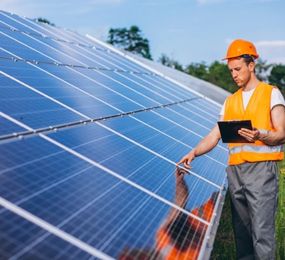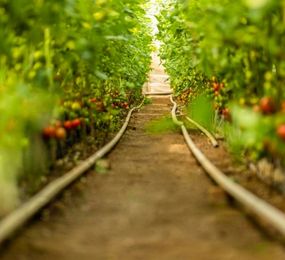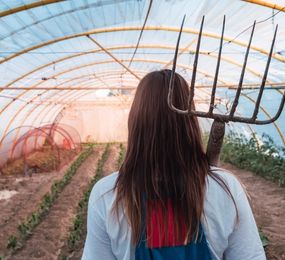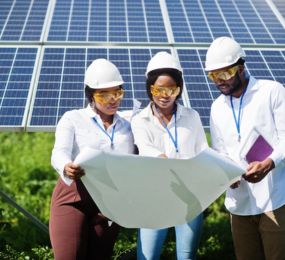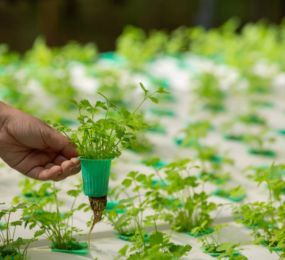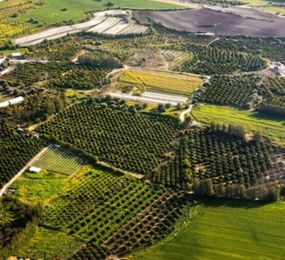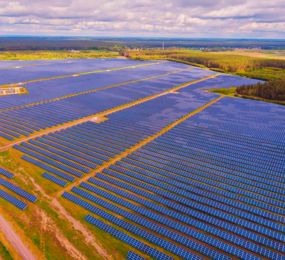As the 2nd Annual AgriVoltaics Europe event approaches, scheduled to take place on 7th - 9th November, 2023, in Steigenberger Airport Hotel, Amsterdam, Netherlands, one of the key presentations will delve into the economic viability and market potential of agrivoltaics. This article explores the significance of these aspects and highlights how agrivoltaics can contribute to sustainable agriculture, energy production, and economic growth.
Agrivoltaics, the integration of agriculture and solar energy production, not only offers environmental benefits but also presents a compelling economic case. By combining these two sectors, agrivoltaics can create new revenue streams, enhance energy production, and contribute to local economies.
Agrivoltaics provide farmers with additional income opportunities beyond traditional agricultural practices. By producing clean energy, farmers can become energy producers and sell surplus electricity to the grid. This diversification of income sources helps increase farm resilience and financial stability. Moreover, the dual-use of land allows farmers to simultaneously cultivate crops and generate electricity, optimising land use efficiency and maximising returns.
Agrivoltaics can help reduce operational costs associated with both agriculture and energy production. In terms of agriculture, the shading provided by solar panels can mitigate heat stress, reducing the need for expensive cooling mechanisms or irrigation. Additionally, agrivoltaic systems can offer cost savings by utilising rainwater harvesting for irrigation purposes, minimising reliance on external water sources. In terms of energy production, the integration of solar panels into agricultural land reduces the need for separate land acquisitions, leading to cost savings in infrastructure development.
Governments and institutions worldwide are increasingly recognizing the potential of agrivoltaics and providing subsidies and incentives to promote its adoption. These incentives can include feed-in tariffs, tax benefits, grants, and low-interest loans, among others. Such support mechanisms help offset initial investment costs, making agrivoltaics economically viable and attractive for farmers and investors. Furthermore, these incentives facilitate the growth of local renewable energy markets and contribute to the transition to a sustainable energy system.
Agrivoltaics not only present economic benefits at an individual farm level but also hold significant market potential. The demand for both sustainable agriculture and renewable energy is on the rise globally. Agrivoltaic systems can cater to this demand by offering a unique proposition that combines food production and clean energy generation. As consumers increasingly prioritise sustainability and seek out locally sourced products, agrivoltaic produce can find a niche market, commanding premium prices. Additionally, the surplus energy generated from agrivoltaic systems can be channelled into local energy markets, providing clean energy options to nearby communities.
Agrivoltaics have the potential to drive rural development and revitalise rural economies. By integrating renewable energy production into agricultural landscapes, agrivoltaics create job opportunities in both the agriculture and energy sectors. The establishment of local energy markets fosters community involvement, enhances energy security, and strengthens regional economies. Moreover, agrivoltaics contribute to the retention of agricultural land, supporting the preservation of rural landscapes and the preservation of traditional farming practices.
The presentation on the economic viability and market potential of agrivoltaics at the 2nd Annual AgriVoltaics Europe event will underscore the compelling case for integrating agriculture and solar energy production. Agrivoltaics offer significant revenue generation opportunities, cost reductions, access to subsidies and incentives, and a promising market potential. By combining economic benefits with environmental sustainability, agrivoltaics pave the way for a more resilient, economically viable, and sustainable future in agriculture and energy production.
To register or learn more about the Forum please check here:http://bit.ly/3kR0v2R.
For more information and group participation, contact us: [email protected]




